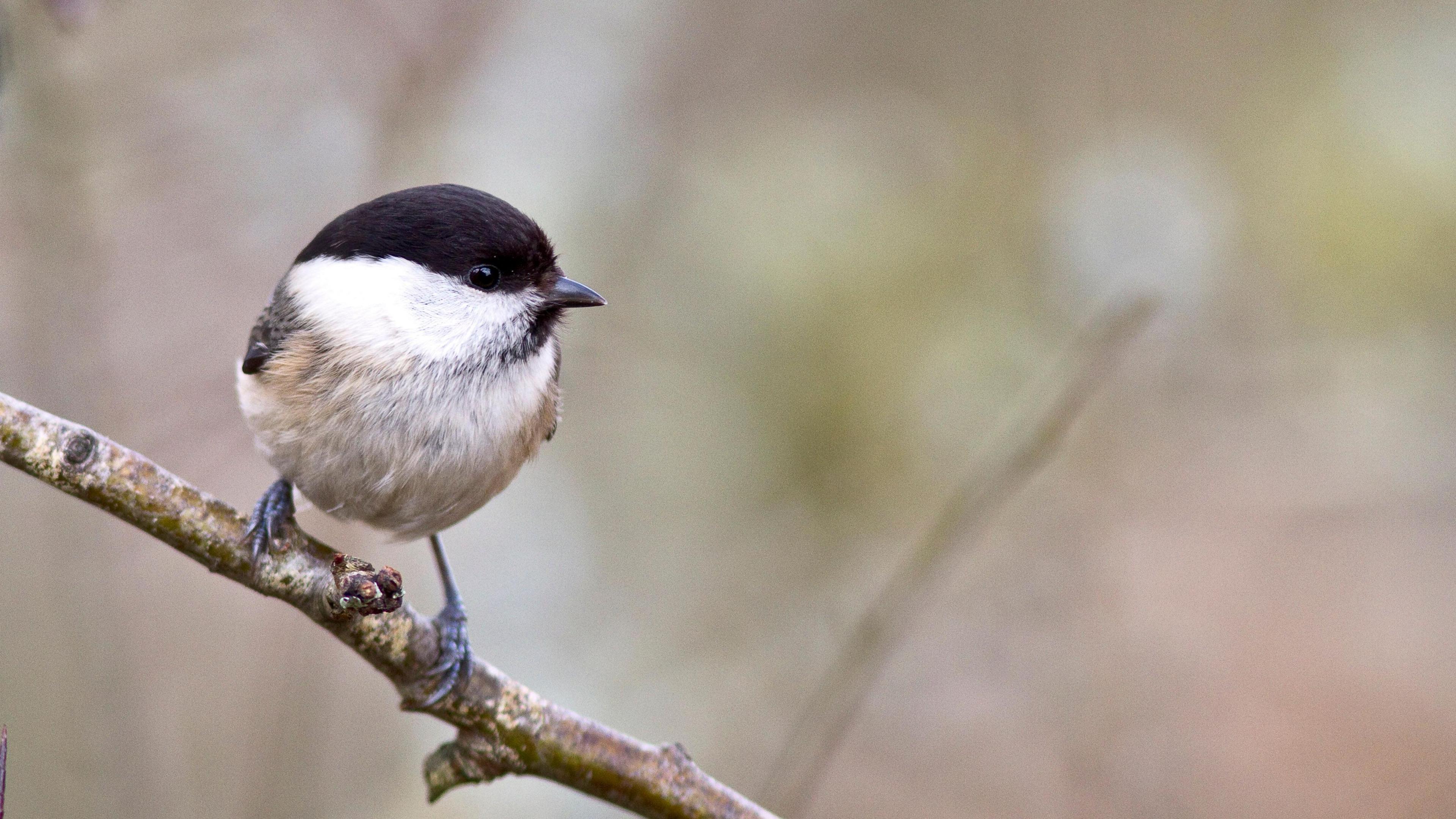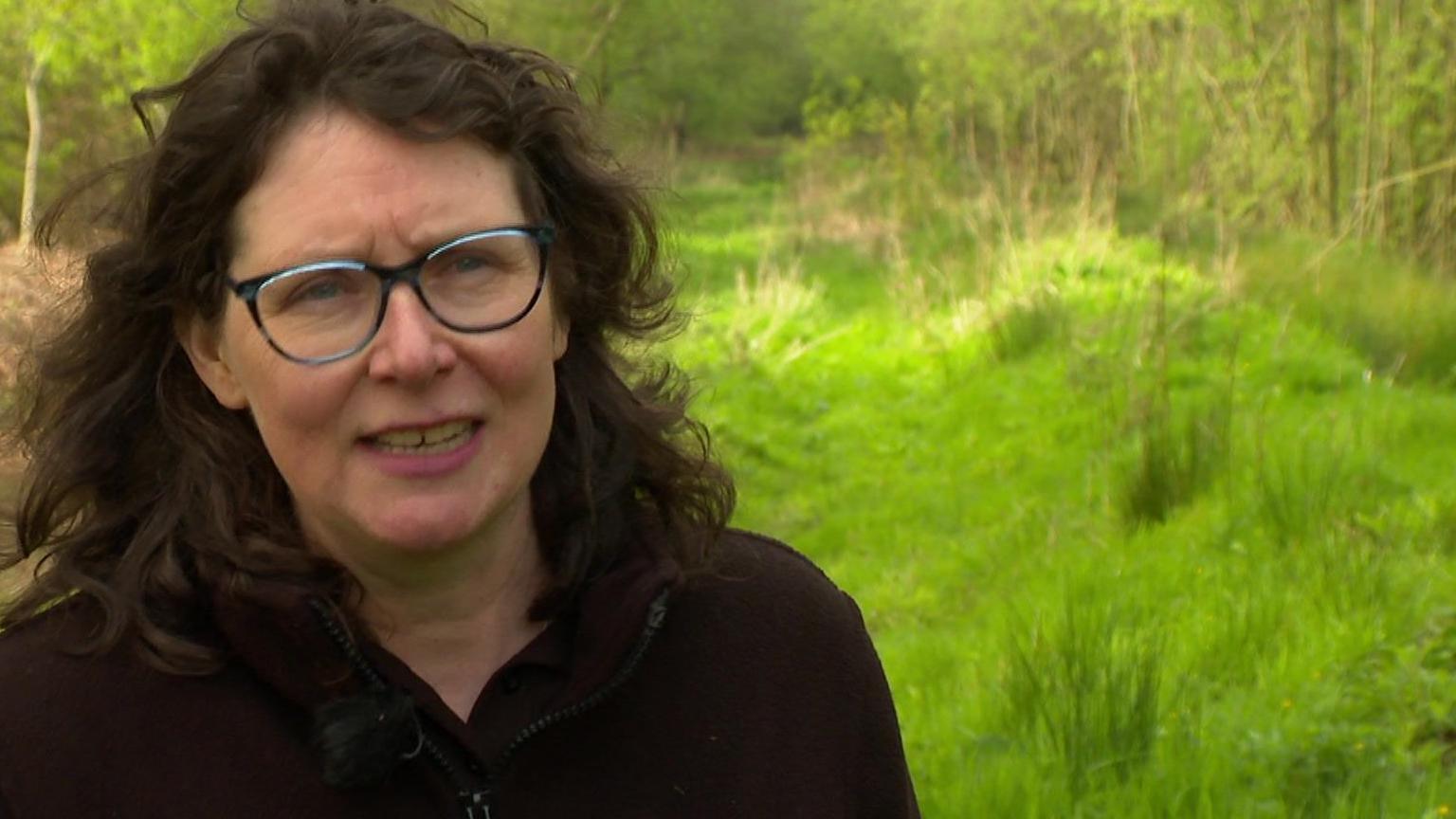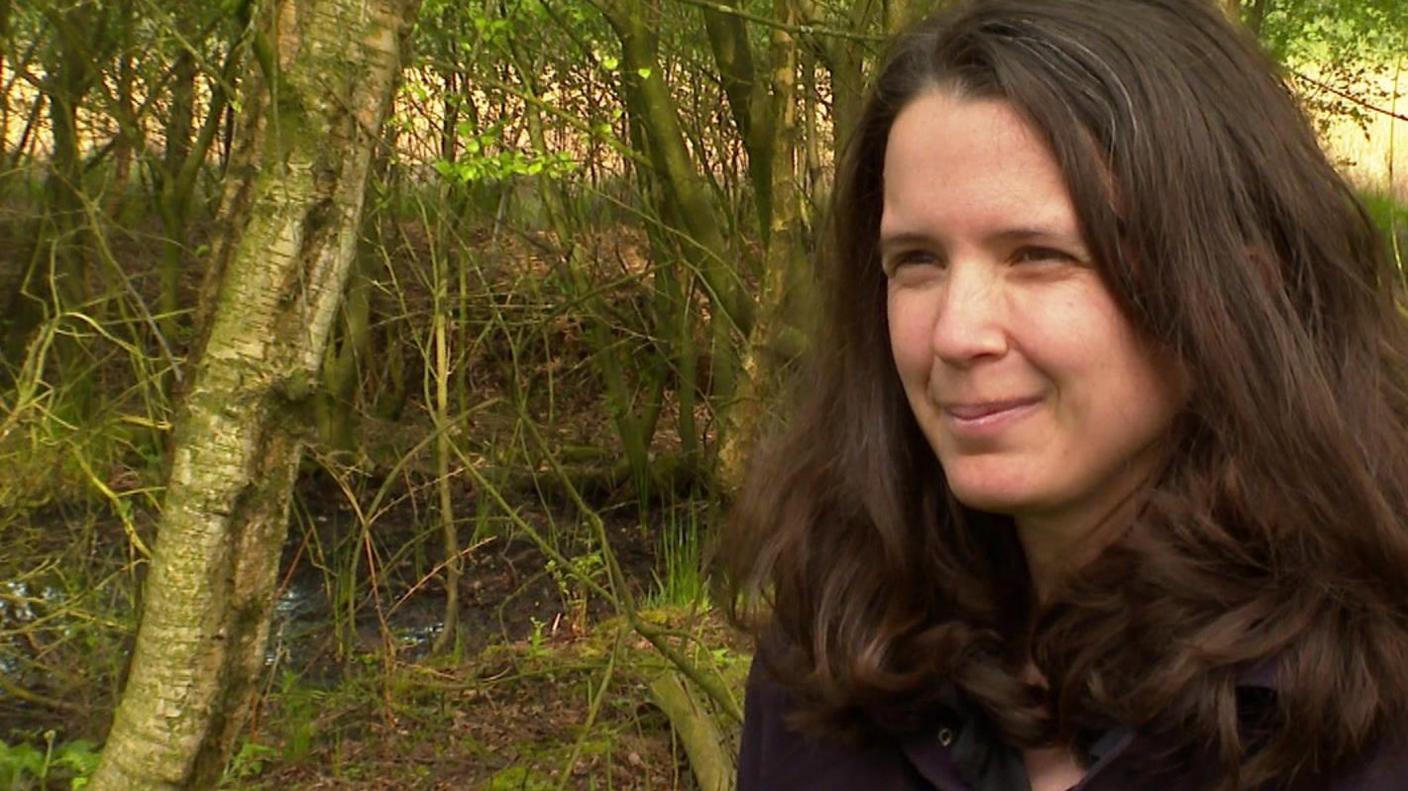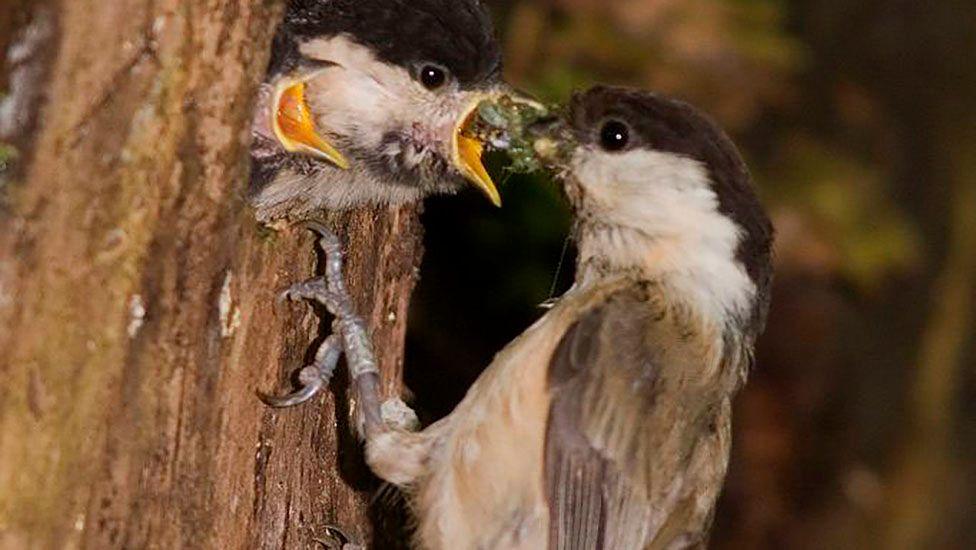Rescue plan hatched for rare willow tits

The willow tit population has dropped by more than 90% in the UK in just over half a century
- Published
A rescue plan to reverse a decline in the population of endangered willow tits is being hatched by conservationists.
Breeding pairs of the species in Greater Manchester are estimated to have dropped from 300 in 1984 to about 120, the Lancashire, Manchester and North Manchester Wildlife Trust said.
The Wet Willow Wildlife project - a partnership between the trust and The Conservation Volunteers - will gather data to help increase the bird's habitat, which has a central point in Wigan, to boost its chances of survival.
Jo Kennedy, of the LWT, said the species "really needs our help".

The Wildlife Trust's Jo Kennedy said climate change had played a part in the decline of the birds
Willow tits are on the International Union for Conservation of Nature’s red list, meaning they are under threat of extinction.
The bird is black, pale brown and white in colour and very similar to the marsh tit but has a distinctive pale panel on its wings.

Willow tits are a reclusive species and need help to survive, conservationist Ruth Crawford says
Astley Moss in Wigan has been identified as an area which could be restored to help the population grow.
Conservationist Ruth Crawford said the key was to introduce damp, rotting wood as that is what they really like.
"We don't need to tidy everything up - we want to keep everything wet damp and scruffy," she said.
The birds are often found really close to people's houses in "scruffy little pockets of woodland", she said.
"They're an elusive bird so people don't know that they're there," Ms Crawford said.

The willow tit numbers are dwindling and the species "really needs our help", says Jo Kennedy
Volunteers are working with the Wildlife Trust with funding from the government's Species Survival Fund, external.
The trust's Jo Kennedy said climate change had played a part in the birds' decline.
"Some of the wetter habitats potentially might be drying up in the longer, hotter summers," she said.
"It's a bird that doesn't move that far and we need to create these pocket of habitats - sort of stepping stones - across the landscape so the willow tits can move around and connect up."
More like this
Nature reserve celebrated in town
- Published9 July 2023
Industrial wasteland becomes new nature reserve
- Published3 October 2022
Listen to the best of BBC Radio Manchester on Sounds and follow BBC Manchester on Facebook, external, X, external and Instagram, external. You can also send story ideas to northwest.newsonline@bbc.co.uk, external